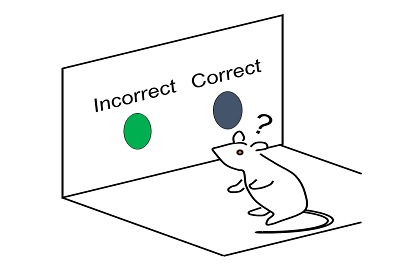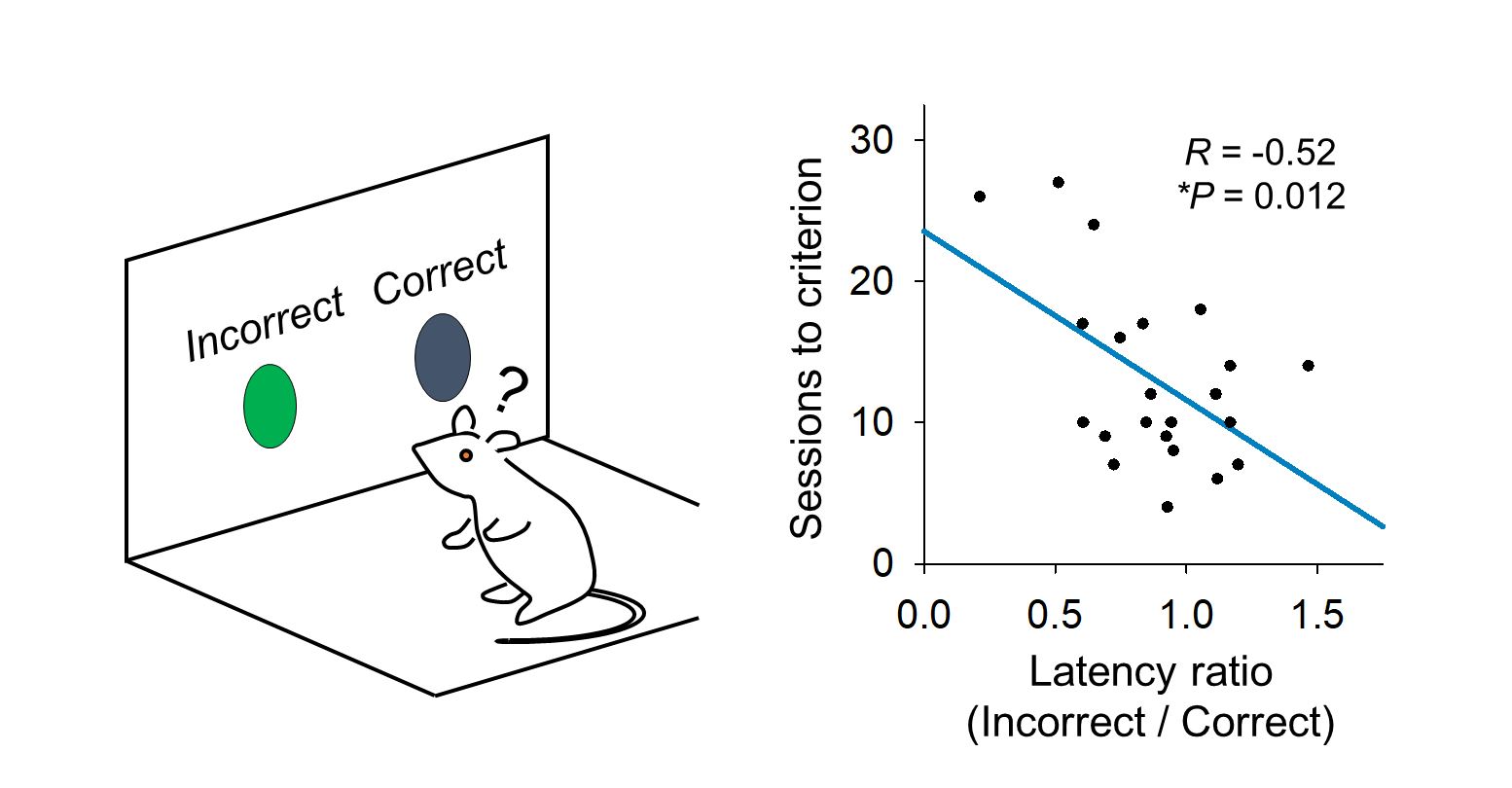Answering too quickly slows learning Study in rats reveals negative effects of hasty decision-making


Left: A rat receives a reward only when it pokes its nose into the hole that is not illuminated by a green light. Right: The number of sessions spent to reach the criterion is plotted against the ratio of latencies in incorrect trials to those in correct ones. Each dot represents data from a single rat. These parameters were negatively correlated.
© 2018 Yosuke Yawata, Yuji Ikegaya.
Careful deliberation before making a decision is critical to successfully learn a new task, more so than getting a correct answer, according to research in rats. University of Tokyo researchers observed how rats learned during a two-choice task and investigated the individual differences in their task performance as part of ongoing research to understand neural mechanisms of learning.
The ability to make flexible decisions is a positive adaptation in a changing environment and constitutes intelligent behavior. Appropriate decision-making includes at least two factors: speed (quickness) and quality (correctness). However, previous experiments had not fully addressed the relationship between the time taken between those two factors.
The research team led by Professor Yuji Ikegaya of the Graduate School of Pharmaceutical Sciences investigated the relationship between being presented with a choice and making a decision, referred to as response latency, and the percentage of correct choices. Rats were placed in a room with two nose-poke holes, either of which was randomly illuminated by a green light. To receive rewards, animals were required to poke their noses into the dark hole. The researchers analyzed the relationship between individual rats' latency times and their task performance. Faster responses were associated with slower learning. Rats that decided to nose poke more quickly – regardless of whether they happened to choose the dark hole or the one with the green light in any single trial – learned the correct response (always poke the dark hole) more slowly throughout the four-day-long test. Correctness during learning, which means the number of correct choices by chance, was unlikely to influence a rat's overall test performance.
This study suggests that failure after deliberation, rather than successful experience, is important for learning. Researchers hope that this study will not only provide the basic knowledge of animals' survival strategies, but also be the first step to understand the neural basis of individual differences in animals' learning strategies.
"The reason why we successfully found the individual difference within rats may be the exquisite difficulty of the behavioral task," said Ikegaya. He continued, "Although it is often said that failure teaches success, jumping to a wrong conclusion may not hold true for this task."
Papers
Yosuke Yawata, Kenichi Makino, Yuji Ikegaya, "Answering hastily retards learning," PLOS ONE: April 25, 2018, doi:10.1371/journal.pone.0195404.
Link (Publication )
)
Related links
- Graduate School of Pharmaceutical Sciences

- Laboratory of Chemical Pharmacology, Graduate School of Pharmaceutical Sciences






